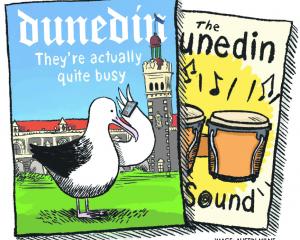
Dr Borren said successive rates rises of 48.5% last financial year, 18% this year and now a proposed 18.8% rates rise in the next were directly linked to the council establishing itself as a fit-for-purpose organisation on par with other regional councils in New Zealand.
"We’ve doubled in size — it’s probably about where we should be, and in future we should be looking at much more normal increases, similar to other councils around the country," he said.
The council has opted for a limited consultation, without formal submissions or hearings, because its draft annual plan is largely the same as the third year of the present long-term plan, but adjusted for inflation.
Spending in the coming year was expected to be $113.7million, compared with the $110.1million consulted on previously, a report from corporate planning staff said.
The proposed total rates revenue — both general and targeted rates — was $56.1million, an increase of $3.2million (6.8%), it said.
The overall rates take increase was made up of $3.1million extra in general rates revenue and a $90,000 targeted rates rise.
The general rate increase included $1.4million for "inflationary impacts" on staff costs, the report said.
Dr Borren said trying to cut costs while also "trying to grow" the organisation was not straightforward.
If councillors had hoped to cut 10% from the rates rise "the natural consequence" would be that the council would lose 10% of its work programme — "and there’s lots of ways we would do that".
Former council chairman Andrew Noone attempted to cut 2% from the rates rise after Dr Borren confirmed a lesser cut might not affect the work the council had planned for the coming year.
However, he failed to find support.
Cr Elliot Weir said through a series of previous workshops councillors had asked staff to cut a proposed rates rise of more than 20% back to the 18.8% rates rise councillors considered on Wednesday.
They were not confident a further 2% drop would have no impact on "the thoroughness, the timeliness or ... the staff’s ability to actually do their job".
Staff were under a great deal of pressure he did not want to add to, Cr Alan Somerville said.
Cr Alexa Forbes said the council had only just started to "pull ourselves up by our bootstraps".
"We have needed to scale up our organisation to meet the demands and the challenges that are frankly hurtling towards us — as we are just watching."
The council had limited options, Cr Kevin Malcolm said.
"Unless someone comes along and gives us a bunch of cash ... there’s two places we can retrieve that money. You can whack your bus fares up, or you can whack your rates up — that’s the two levers we can pull.
"I can tell you now we’re not whacking the bus fares up, because there’s people who will shoot me around the table."
Cr Kate Wilson said councillors did not have the information they needed to make an informed decision and called the staff report "a light touch of a report".
She said councillors had failed to receive examples of what the rates rises actually were.
Referencing her days as a Dunedin city councillor, she said talking about an average increase was not a good basis for decision-making.
"I am absolutely tired of hearing ‘18.8% average ... $54’.
"I went through a terrible stadium debate where it was ‘a coffee a week’, and that isn’t how it plays out for so many people."
Cr Michael Laws said over the three years on the long-term plan there would be a greater than 80% increase of rates, which was unmatched in New Zealand.
Cr Gary Kelliher said the debate made his blood boil.
Central Otago ratepayers near him were gathering funds for "a war chest" to fight against council policies that they expected to be unfair, Cr Kelliher said.
"My region are feeling especially hammered by the ORC, and then what they’ve had to suffer is substantial rates increases across the past three years, year in and year out.
"There is genuine hardship out there and I get regular phone calls when rates demands get sent out."
Advertisement













